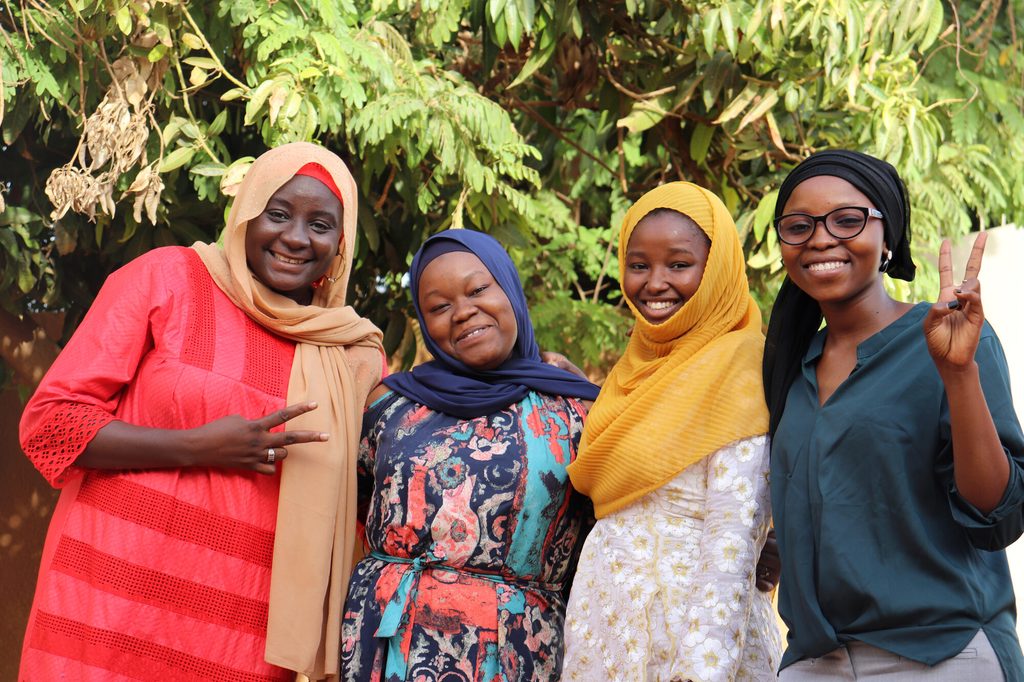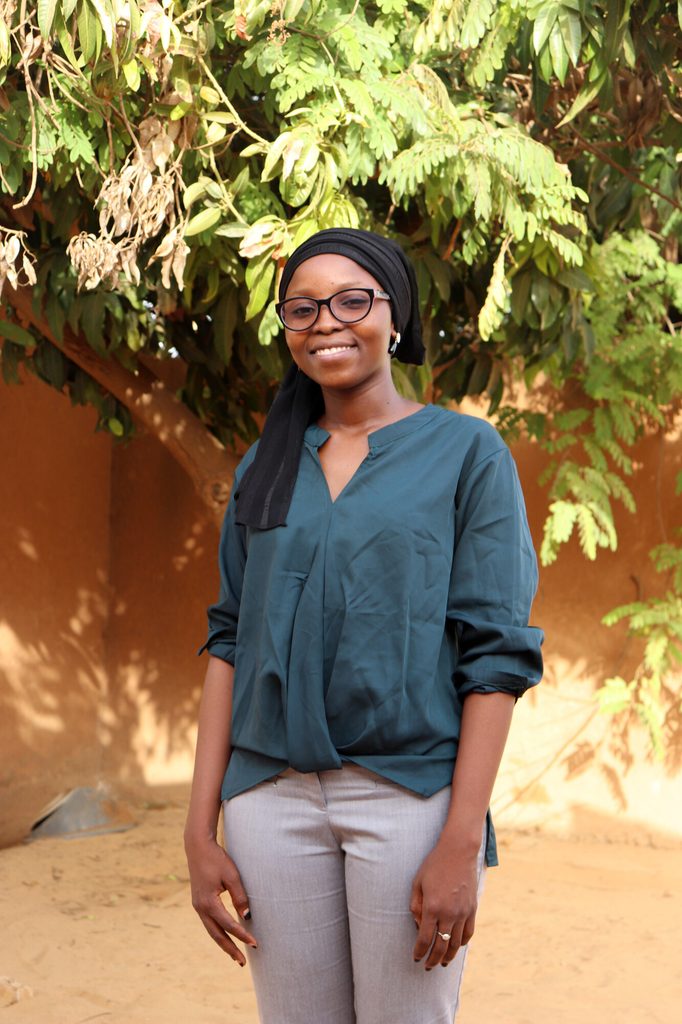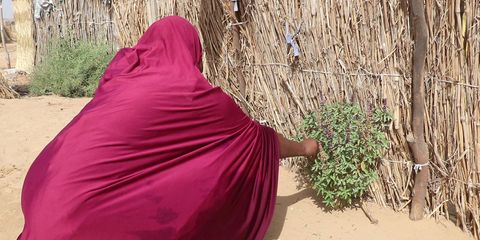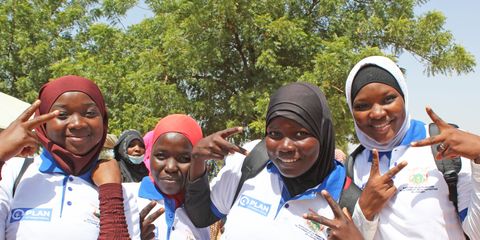In Niger, a country with the highest rate of child marriage in the world according to UNICEF, an association of girls and women has been fighting for sexual and reproductive health and rights since 2020, including in crisis-affected areas.

Throughout Niger, the girls’ association for reproductive health (Association des Jeunes Filles pour la Santé de la Reproduction – AJFSR) carries out both mass awareness-raising campaigns and training and discussion sessions for girls with the support of Plan International.
“Reproductive health is a taboo subject. But girls have sexual and reproductive rights, they need to know about them and promote them,” explains Kadiatou Idani, the association’s president.
The AJFSR has received support from Plan International, including funding of €4,700 through the Youth Challenge Fund mechanism implemented in West and Central Africa. With this assistance, it trained 30 girl leaders in 3 schools in Niamey, and set up a sexual and reproductive health club in each of the schools.
“We have to talk about sexual and reproductive health. Sexual harassment is on the rise, and now is not the time to keep quiet.”
Aminatou Ambarka, the AJFSR’ general secretary
Everyone was involved to enable the clubs to get underway. “The school principals contacted the parents and obtained their agreement. This avoided any misunderstandings. Otherwise we could have had problems,” says Kadiatou adding that 3 supervisors have also been trained. “They are very motivated. They’ve drawn up action plans.”
The girl leaders organise discussions between girls, but also encourage open dialogue for boys, for example on menstrual health. One of the clubs lobbied for separate toilets from the school management, and organised their cleaning with the support of the supervisors.
Girls and women defying cultural norms
Talking about sexual and reproductive health is not easy in Niger, and these difficulties were addressed with the girls during their training. “They are aware of the risks. They know how to deal calmly with negative responses,” explains Kadiatou. Generally speaking, the girls deal with such reactions on a daily basis. “Often it’s insults. We don’t respond. We only focus on the positives to achieve our results.”
The AJFSR girls agree when their commitment is described as courageous, but in their view, what they are doing is essential. “We’ve reached a stage where we have to talk about sexual and reproductive health. We’re no longer in our parents’ time. Sexual harassment is on the rise, and now is not the time to keep quiet,” explains Aminatou Ambarka, the association’s general secretary.
The girls want to continue supporting the 3 school clubs, but in order to do so, the association is looking for additional sources of funding. One possibility is extending the project to regions affected by conflict and food insecurity.
More support needed for crisis-affected communities

Since its creation, the association has held awareness-raising activities at displaced persons and refugee sites in the Tillabéri region, where the needs are immense. “These girls are so exposed. During discussions, some parents and girls told us that there are many rapes,” explains Kadiatou.
The crisis in the Sahel region has specific and greater consequences for women and girls. According to Project 21, a regional interagency protection monitoring tool led by UNHCR and the Danish Refugee Council, 18% of people surveyed in January and February 2023 in Burkina Faso, Mali and Niger were aware of cases of gender-based violence in their communities during the past month.
Kadiatou believes that the priority today in Niger, and in crisis-affected areas in particular, is not only access to information, but also the provision of adequate services. “We need to increase both the demand for and supply of sexual and reproductive health services. In addition, refugees and displaced people sometimes feel that they have no right to attend health centres in their host communities, and fear prejudice. We need to build trust and train health workers to welcome and care for young people,” says Kadiatou.
Rates of sexual violence and early and forced marriage increase during times of crisis, but even when services are available, fear of stigma is an obstacle that prevents many from girls and women accessing care.
“Intervening in crisis-affected areas is something we can and want to do,” confirms Kadiatou, who calls for flexible and more consistent funding to support youth association initiatives.
“I was born a feminist. Anything that makes a woman feel uncomfortable revolts me. I want to fight to defend the rights of women and girls.”
Kadiatou Idani, the AJFSR’s President
The AJSFR currently has 120 members, all girls and women, aged between 15 and 35 united by a shared commitment to promote awareness and respect for sexual and reproductive health and rights.
Now 30, Kadiatou says she has been interested in sexual and reproductive health rights since she was a young girl. “I was born a feminist. Anything that makes a woman feel uncomfortable revolts me. It’s something we’ve lived with since we were little. I’ve witnessed abuse. I want to fight to defend the rights of women and girls.”
The AJFSR girls are supported by the regional Plan International project “Youth and adolescent girls in crisis at the centre in the Central Sahel response” funded by PlanBørnefonden. Through this project, 46 young people’s associations have received financial assistance in Burkina Faso, Mali and Niger.

